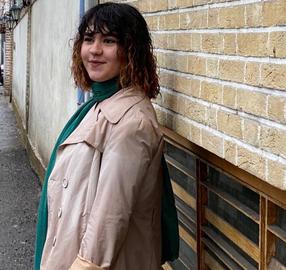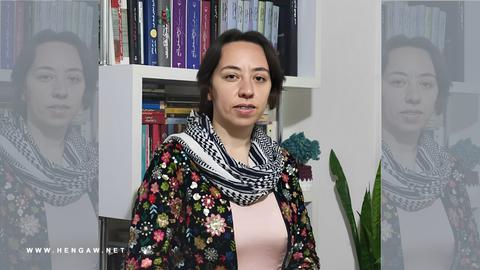- New law grants single women over 30 the right to adopt children
- Discrimination against single women persists, with priority given to couples wanting to adopt
- The law does not allow women from religious minorities to adopt, and Iran's Welfare Organization has offered no guidance
Every week for eight months now, Neda has gone to the Welfare Organization a few times every week. She has completed all the forms, but still there has been no progress. Although under a new law, Neda, 35 years old and single, can now legally adopt, she and many others have so far been unsuccessful.
In 2015, Iran passed a law granting single women over the age of 30 the right to adopt a child. But, despite the hope the new law brought to women wanting to adopt across Iran, priority is still given to couples. In addition, the new law only applies to Shia Muslim women. Women from Iran’s religious minorities are not eligible for the new scheme.
On August 21, the public relations department of Tehran’s Welfare Organization reported that since the legislation was introduced, 62 single women have applied to adopt children but only five of them have been successful.
“I said that if one day I married, it would be only so I can have a child,” Neda told me. “When I learned about the law, I acted immediately, but still I am waiting. They tell me that I can adopt a child over eight right now, but if I want a younger child, I have to wait in line.”
Neda described how the welfare organization keeps giving her forms designed for couples wanting to adopt. “The law is so new that they still don’t have forms for single applicants. They told me that I had to satisfy all the requirements except a doctor’s certificate.”
The first requirement is that the applicant must be a resident of Tehran. Tehran’s Welfare Organization covers three districts and the applicant must be prove residency in one of them. The other requirements include adequate financial means, job stability, Social Security Insurance, a minimum of the equivalent of a high school education, ownership of property or land and a certified commitment that in case of the applicant’s death one-third of her inheritance would go to the adopted child. “They were not too tough about it,” Neda said. “For example, I have a small home of 50 square meters that they accepted.” She said her monthly salary was around $580, but that that was also accepted. The list of requirements ends with these provisos: After the Welfare Organization accepts the application, the waiting time is at least two years, but even then, there is no guarantee that a child will be available for adoption.
Priority for Couples
Neda says it is difficult being the single parent of older children. “Children older than eight understand everything,” she told me. “It takes the child some time to get used to the change in circumstances. Then there is school, where other children have fathers. Personally, I have no problems with the age of the child but being a single parent for older children is more difficult.” She says she is willing to adopt a child aged five or six, but has not received much encouragement. During her last meeting with welfare officials, she was told she would have to continue waiting because “couples have priority.”
Jafar Sharibani, the head of public relations for the Welfare Organization, told Iranian Students’ News Agency that the low number of adoptions granted to single women was due to the fact that most want to adopt children under two years of age. He said the organization aimed to “give children under two to couples and families.”
Sarasota is one of the five single women who was lucky enough to bring home a little girl, aged five. “A month ago she brought happiness into my life,” she said. “Those six months of running around were well worth it.” She has been given temporary guardianship for six months, after which she will be granted permanent guardianship if experts from the Welfare Organization give her their seal of approval. “I think this is the best thing that I have done in my life. I recommend to those who really love children and for whatever reason are not married to take advantage of this law.”
The first woman to be granted adoption under the law was 38-year-old well-known actress and university teacher Arezoo Afshar. She adopted a girl aged two years and a few months. She urged women to not give up. “It is not impossible for single women to adopt,” she told IranWire.
From Adoptee to Adoption
But there is a twist to Afshar’s tale. Just a few years ago, she found out that she herself is an adopted child. “My world went dark. I gave up theater, the university and everything,” she said. But then things changed for her. “I was acting in a play and there were some officials from the Welfare Organization in the audience,” she said. “After the performance I talked to them about doing some voluntary work,” she said. They accepted.
In the course of her voluntary work, Afshar met a little girl. “I became fond of her and spent all my time with her,” she said. “Then a colleague of mine told me about the law for single women. It took me several months, but I did not give up. Now for the past five months my daughter Parmida and I have been living under the same roof.”
In June, during the holy month of Ramadan, Afshar and Parmida appeared on a popular TV program, during which Afshar told her story. One of the viewers was Mah Banoo, 33, who was driven to tears. Ban was married, but the marriage ended in divorce because she could not have children. She loves children and not having one has been the greatest sorrow of her life. The day after the TV program featuring Arezoo Afshar was broadcast she set out for the Welfare Organization to inquire about application requirements. Banoo has been told she meets all the requirements. She just wants to be a mother — the age of the child makes no difference to her. But Banoo will not be able to adopt. “I am a Zoroastrian,” she said. “The Welfare Organization only allows children to go to Muslims. They told me that they could not do anything for me.”
After listening to Mah Banoo’s story, I decided to contact the Welfare Organization myself. “Non-Muslims cannot adopt children through the Welfare Organization,” a member of the organization’s public relations team told me, and this was confirmed by another employee. “Welfare cannot give children to religious minorities,” he said. “They have their own arbitration tribunals and maybe those tribunals can help minorities. If a child belongs to the same religion they can perhaps arrange for the child’s adoption. We cannot give children to religious minorities for adoption.”
For many women and children, the new law is good news. Despite the wait, women who were once left out of the adoption system can now give a home to a child and fulfil their dreams of becoming a parent. However, the system continues to discriminate against them, with applications from couples going straight to the top of the pile. As for women from minority religions, it is the same old story: prejudice and exclusion, and a blatant disregard of their rights as Iranian citizens.
visit the accountability section
In this section of Iran Wire, you can contact the officials and launch your campaign for various problems


























comments